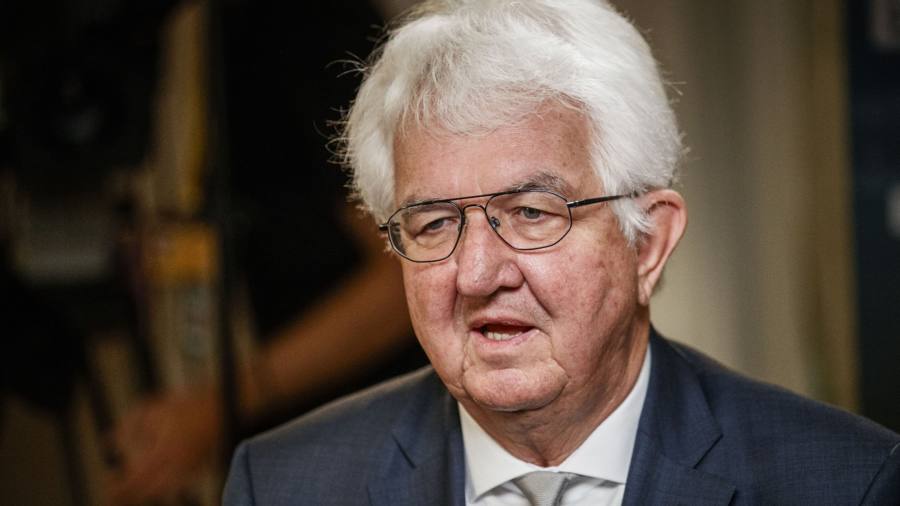
The European Central Bank needs to maintain the pace of rate rises at its next vote to convince the public that policymakers are “serious” about taming inflation, said Austria’s hawkish central bank chief.
Robert Holzmann, head of the National Bank of Austria and member of the ECB’s governing council, backed a third straight 0.75 percentage point rise in the deposit rate at the next rate-setting meeting in mid December. The move would raise benchmark borrowing costs to 2.25 per cent.
His comments underline the potential for a clash at the next vote, with policymakers split between keeping up the pace and switching to smaller increases on the back of signs of a recession.
Holzmann told the Financial Times that he could “see no signs that core inflation is reducing” in the eurozone and he expected only a “flattening out of growth, or a mild recession”, rather than a deep downturn in the 19-country bloc.
Another big rate rise “would give a strong signal about our determination,” said the former economics professor who worked for several years at the World Bank. “It would tell businesses and trade unions we are serious so don’t underestimate us, be careful.”
Inflation in the eurozone hit a record of 10.6 per cent in the year to October, reflecting soaring energy and food prices following Russia’s invasion of Ukraine.
Economists expect the headline rate of inflation to fall next year. But core prices, excluding energy and food, increased 5 per cent last month and are likely to keep rising well above the ECB’s 2 per cent target.
Holzmann said he was still “open to changing my mind” based on the ECB’s new quarterly economic forecasts, out at the same time as next month’s meeting on December 15.
ECB chief economist Philip Lane, one of its more dovish rate-setters,
said in remarks published on Monday that 75 basis point rises may no
longer be necessary as earlier increases meant that its benchmark deposit
rate, now 1.5 per cent, was close to the point where it no longer
supported growth. “The more we’ve already done, the less we need to
do,” Lane told Market News.
However, Slovenia’s central bank head Bostjan Vasle said the ECB should keep raising rates “even into the territory where monetary policy won’t be just neutral, but will become more restrictive”.
Some European politicians have started to warn the ECB not to raise rates too high. Last month, Italy’s prime minister Giorgia Meloni said that tighter monetary policy was “considered by many to be a rash choice”, while France’s president Emmanuel Macron warned that he was worried about central banks “smashing demand” to tackle inflation.
Holzmann said interest rates could have to rise to the point where they “caused pain”, but he added “hopefully it won’t come to that”.
He said it was important to raise rates “early” to stop businesses and households betting that high inflation would endure. “Afterwards the pain is much, much larger,” he said.
Companies across Europe have faced rising wage demands from workers to compensate for the higher cost of living, including in Austria. But Holzmann said there were no signs of a 1970s-style wage-price spiral. “I have not heard messages from industry in Germany and Austria that they fear that ‘OK if we get these wage increases we need to pass them on’,” he said.
The ECB plans to discuss shrinking its €5tn bond portfolio at next month’s meeting and Holzmann said this could start before it had finished raising rates, adding that it was important to avoid short-term borrowing costs rising above long-term ones.
This situation, known as an inverted yield curve, would be a challenge for Europe’s banking sector, which relies on being able to borrow cheaply in the short term to make longer-term loans at higher rates.
“We have to make sure it doesn’t get to that point,” Holzmann said.